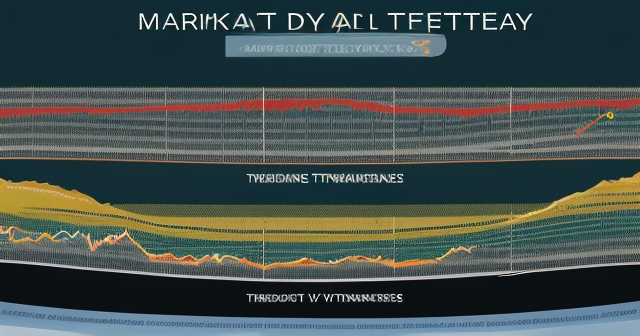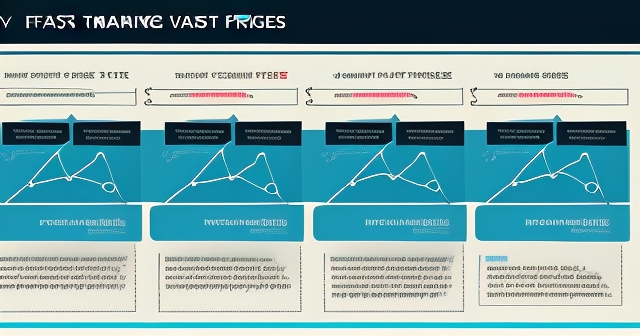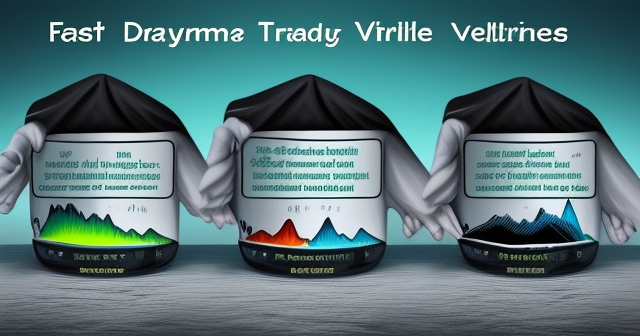Understanding the Landscape of Spread Betting Losses
Spread betting is a popular, albeit high-risk, form of leveraged trading that allows you to speculate on the price movement of financial markets without owning the underlying asset. It offers the potential for magnified returns from relatively small price changes due to leverage. However, this same leverage is a double-edged sword, dramatically amplifying the potential for significant capital loss. For many retail traders entering this arena, the journey unfortunately ends not in profit, but substantial trading losses. Why is this outcome so prevalent, and what fundamental factors contribute to the high incidence of spread betting losses among new participants? Let’s dissect the core reasons together, moving beyond the surface-level explanations to understand the mechanics of failure in this demanding market.
- This trading method is accessible to many, creating an illusion of ease.
- The complexity of market behaviors can lead to misunderstandings of potential risks.
- New traders often overlook the importance of a solid trading plan and effective risk management.
| Factor | Contribution to Loss |
|---|---|
| High Leverage | Increases risk with minimal cash outlay. |
| Market Volatility | Can lead to unexpected price movements. |
| Lack of Education | Without understanding market movements, traders are ill-equipped. |
The Core Mechanics: Leverage and its Perilous Potential
At the heart of spread betting lies leverage. This concept allows you to control a large position in the market with a relatively small amount of capital, known as margin. If you commit £1,000 in margin with a 100:1 leverage ratio, you can control a £100,000 position. If the market moves favorably by just 1%, your £100,000 position gains £1,000, effectively doubling your initial capital before accounting for spreads or commissions. This sounds appealing, right? But consider the reverse. If the market moves against you by just 1%, you lose £1,000 – wiping out your entire initial margin. This high risk element is inherent to spread betting and other leveraged products like CFDs. It means that even small, unfavorable price movements can lead to rapid and substantial capital loss, much faster than in traditional investments where you own the asset outright.
Understanding leverage isn’t just knowing it exists; it’s internalizing its exponential effect on both potential gains and, more critically, losses. It requires a profound respect for how quickly positions can deteriorate. This mechanism is a primary driver of trading losses for inexperienced retail traders who may underestimate the capital at risk relative to the position size they control.

The Foundation of Failure: Lack of Preparation and Insufficient Education
One of the most common reasons why retail traders experience spread betting losses is a fundamental lack of education and preparation. Entering the financial markets, especially with leveraged products, without a solid grounding in market mechanics, technical analysis, fundamental analysis, and crucially, risk management, is akin to sailing into a storm without navigation tools. Many new traders are attracted by the potential for quick profits advertised in the market, overlooking the rigorous study and practice required.
What specific knowledge gaps contribute to trading losses?
-
Lack of Understanding of the Product Itself: Not fully grasping how the spread works, the cost of holding positions overnight (financing charges), margin calls, and the implications of slippage.
-
Inadequate Market Knowledge: Failing to understand the factors that influence the price of the instruments they are trading, whether it’s economic data releases for currency pairs (EUR/CHF, Forex), company news for stocks, or global supply/demand dynamics for commodities.
-
No Grasp of Technical or Fundamental Analysis: Without the ability to analyze charts, identify trends, support/resistance levels, or interpret economic indicators, trading decisions often become purely speculative, driven by guesswork rather than reasoned strategy.
-
Ignorance of Risk Management Principles: This is perhaps the most critical gap. Many traders do not understand how to calculate appropriate position sizes based on their account size and risk tolerance, or the vital importance of using stop losses.
| Knowledge Gap | Impact on Trading |
|---|---|
| Product Understanding | Potential unexpected costs or losses. |
| Market Influences | Trades made without insight into price movements. |
| Analysis Skills | Leads to unpredictable trading outcomes. |
Continuous market research and ongoing education are not optional; they are essential for survival. The markets are dynamic, and what worked yesterday might not work today. Failing to adapt and learn is a direct path to spread betting losses.
Trading Discipline: The Achilles’ Heel for Many
Even with a solid educational foundation, poor trading discipline can quickly lead to capital loss. Emotion often overtakes logic when real money is on the line. Fear of missing out (FOMO) can lead to impulsive entries, while fear of taking a small loss can result in holding onto losing positions until they become catastrophic. Greed can cause traders to remove stop losses prematurely or take on excessive leverage in pursuit of unrealistic profits.
Consider the critical importance of the stop loss order. A stop loss is a market order designed to automatically close a trade when the price reaches a predefined level, thus limiting potential trading losses. Yet, many traders either fail to set them at all or move them further away from the entry price as the trade moves against them, hoping the market will turn around. This act of “hoping” rather than executing a planned exit strategy is a hallmark of poor discipline and frequently leads to minor losses escalating into significant spread betting losses.
Holding onto losing trades is another classic error. Traders become emotionally attached to their positions, unable to accept they were wrong. They watch their account equity dwindle, paralyzed by the thought of realizing a loss. Meanwhile, disciplined traders cut their losses early and preserve capital to trade another day. Discipline isn’t just about setting stop losses; it’s about having a trading strategy based on objective analysis and adhering to it strictly, regardless of fear or greed.
The Peril of Under-Capitalization and Excessive Risk-Taking
Under-capitalization is a significant contributor to spread betting losses. Many beginners start with insufficient capital relative to the size of the positions they wish to trade, or the inherent volatility of the markets they choose. This forces them to use excessive leverage, meaning even small market fluctuations can trigger margin calls or wipe out their account entirely.
Proper risk management dictates that you should only risk a very small percentage of your total trading capital on any single trade (commonly cited figures range from 0.5% to 2%). If you have a small account, adhering to this rule means trading very small position sizes. However, the allure of high profits leads many retail traders to risk 10%, 20%, or even more of their capital on one trade. One or two losing trades under this scenario are enough to inflict devastating trading losses.
Excessive risk-taking isn’t just about position sizing; it’s also about trading too frequently, especially without clear signals based on a well-defined trading strategy. Overtrading, often fueled by the need to “make back” previous losses, accelerates the depletion of capital. Under-capitalization limits a trader’s ability to withstand inevitable drawdowns and encourages impulsive, high-risk decisions, making spread betting losses highly probable.

Market Volatility: The Unseen Storm for Leveraged Positions
Financial markets are inherently volatile. Prices fluctuate constantly due to a myriad of factors, including economic news, political events, and market sentiment. While volatility creates opportunities for profit in spread betting, it is also a major source of trading losses, particularly for leveraged products. Increased market volatility means prices can move sharply and unpredictably, turning a profitable position into a losing one very quickly.
For retail traders, navigating market volatility requires a deep understanding of its potential impact on their positions. News events, such as interest rate decisions, employment reports, or geopolitical developments, can cause sudden and significant price gaps. If you have an open position during such an event and the market moves sharply against you, your potential losses can be magnified by the leverage employed. This underscores the need for vigilance, particularly around scheduled high-impact news releases.
Furthermore, trading against strong market momentum is often counterproductive. While tempting to “buy the dip” or “sell the rally” based on personal conviction, fighting a powerful trend in a volatile market environment is incredibly risky with leveraged products. Market volatility can quickly push prices far beyond a trader’s anticipated range, exacerbating spread betting losses.
| Volatility Source | Effect on Trading |
|---|---|
| Economic News | Can lead to sudden price changes. |
| Political Events | Boosts uncertainty, often causing fluctuations. |
| Market Sentiment | Affect decisions and induce rapid price swings. |
Slippage and the Limitations of Stop-Losses in Extreme Markets
We discussed the importance of stop losses, but it’s crucial to understand their limitations, particularly in volatile or fast-moving markets. A standard stop loss is a market order. When the price reaches your specified stop loss level, it triggers an order to sell (for a long position) or buy (for a short position) at the next available market price. The key phrase here is “next available market price.”
In periods of market volatility or when prices are moving very rapidly (e.g., during a major news announcement or a sudden market event), there might be a significant gap between your specified stop loss price and the price at which your order is actually executed. This phenomenon is known as slippage. For instance, you might set a stop loss at 1.1000, but due to a sudden price drop and lack of liquidity at that exact level, your order might be filled at 1.0950. That extra 50 pips of movement results in a larger loss than you intended.
Slippage is a major factor in unexpected spread betting losses, especially when using high leverage. While brokers often offer guaranteed stops which, for a wider spread or a fee, ensure your order is executed at the requested price regardless of slippage, most traders use standard stops to minimize costs. Understanding that standard stop losses are not a guaranteed exit price and can be subject to slippage, particularly during high-impact events, is vital for setting realistic risk expectations and avoiding devastating trading losses.

Case Study: The SNB Crisis and its Aftermath
The inherent risks of leverage, market volatility, and slippage converged in a dramatic fashion on January 15, 2015, when the Swiss National Bank (SNB) unexpectedly removed the Swiss Franc cap against the Euro (EUR/CHF). Prior to this event, the Swiss Franc had been pegged to the Euro at a minimum exchange rate of 1.2000 for over three years. Many forex and spread betting traders had taken large long positions in EUR/CHF, assuming the peg would hold.
When the SNB announced the cap removal, the Swiss Franc surged in value against the Euro, causing EUR/CHF to plummet by thousands of pips in minutes. This was an extreme example of market turmoil. The speed and magnitude of the move overwhelmed the systems and liquidity of many brokers and triggered massive slippage for traders with stop losses. Stops set near 1.2000 were often executed far, far lower, sometimes below 1.0000.
The result? Catastrophic spread betting losses for retail traders globally. Many saw their account balances turn negative, owing their brokers significant sums. Brokers themselves faced aggregate client losses; for instance, IG Group reported client losses of £18.4m attributable to the SNB event. This case study starkly illustrates how even experienced traders, in the face of an unprecedented “black swan” event, can suffer devastating trading losses despite using standard risk management tools like stop losses.
The Broker’s Role and Client Suitability
While trader error is a primary cause of spread betting losses, the role of the broker and the trading platform is also a factor. Brokers provide the trading platform, execute orders, and manage margin requirements. Their business model often relies on the volume of trades executed and, in some cases, clients losing money (if they are the counterparty to the trade). This creates a potential conflict of interest.
Regulators require brokers to assess the suitability of clients for high-risk leveraged products like spread betting and CFDs. This involves asking questions about a client’s trading experience, financial situation, and understanding of the risks. However, critics argue that these assessments are sometimes cursory, and individuals who do not truly understand the risks are still allowed to trade, increasing their likelihood of experiencing spread betting losses.
| Broker Action | Potential Impact |
|---|---|
| Assess Client Suitability | Identifies risks of trading poorly understood products. |
| Order Execution Transparency | Ensures fair treatment of traders during volatile events. |
| Providing Education Resources | Helps traders make informed and structured decisions. |
Regulatory Intervention and Retail Protection
Given the high incidence of trading losses among retail traders engaged in spread betting and CFDs, financial regulatory bodies worldwide have taken action. The FCA (Financial Conduct Authority) in the UK, for instance, has issued numerous warnings about the risks associated with these products, highlighting the fact that a large majority of retail clients lose money. They have also investigated instances of potential mis-selling where the risks were not adequately explained to clients.
Following periods of significant market turmoil that exposed the vulnerability of retail traders to massive spread betting losses (like the SNB event), regulators implemented permanent restrictions. These CFD crackdowns often included measures such as:
-
Lowering Maximum Leverage: Reducing the amount of leverage available to retail traders (e.g., from hundreds-to-one down to 30:1 for major forex pairs).
-
Mandating Negative Balance Protection: Ensuring that clients cannot lose more than the total funds in their trading account, thus preventing them from owing the broker money.
-
Standardizing Risk Warnings: Requiring brokers to prominently display warnings stating the percentage of retail client accounts that lose money.

These regulatory measures aim to mitigate the risk of devastating trading losses for retail consumers by reducing the impact of leverage and providing a safety net against negative balances. While they impact the business models and valuations of brokers like IG Group, CMC Markets, and Plus500, they represent a significant effort to protect individuals from the inherent dangers of leveraged products and curb the frequency of massive capital loss.
If you’re looking for a well-regulated forex broker with global reach, Moneta Markets is worth considering. It holds multiple international regulations, including FSCA, ASIC, and FSA certifications. They also offer segregated client funds, free VPS, and 24/7 multilingual support, making it a preferred choice for many traders seeking security and comprehensive services.
Real-World Examples of Significant Loss
To truly grasp the potential impact of spread betting losses, examining real-world cases is essential. These are not just statistics; they represent individuals who faced substantial capital loss, sometimes leading to severe financial distress.
-
Marcel Zidani, a former professional poker player turned trader, reportedly lost £5.5k over a short period, highlighting how quickly losses can accumulate for individuals transitioning from different risk environments.
-
Tomas O’Comartuin faced trading losses of around £280k, a stark reminder of the scale of losses possible, particularly when employing high leverage in volatile markets.
-
An individual named Geraldine shared her story of losing £15k, underscoring that significant losses are not limited to those with vast sums of capital, but can impact individuals with more modest initial deposits.
-
On a much larger scale, businessman Robert Tchenguiz reportedly faced spread betting losses of approximately £6.5mn with IG Group during the 2008 financial crisis. His subsequent legal challenges against the broker, while complex and ultimately unsuccessful in establishing misconduct by IG, highlighted issues around risk management during extreme market turmoil and the mechanics of margin calls and stop-outs.

These cases, ranging in magnitude, illustrate that spread betting losses are a tangible reality and can have profound financial and personal consequences. They serve as cautionary tales, emphasizing the need for extreme caution, robust risk management, and a deep understanding of the product’s risks before engaging in leveraged product trading.
Navigating the Path Forward: Strategies for Mitigating Risk
While the statistics on spread betting losses are sobering, they are not an indictment of trading itself, but a strong warning about specific practices and the nature of leveraged products. For those who choose to participate, mitigating the risk of capital loss requires a conscious, disciplined approach.
What steps can you take to improve your chances of success and avoid becoming another statistic?
-
Prioritize Education and Research: Invest time in learning the intricacies of financial markets, specific instruments, technical and fundamental analysis, and advanced risk management techniques. Stay updated on market news and economic calendars.
-
Develop and Stick to a Trading Plan: Define your trading strategy, including entry/exit rules, position sizing based on your account size, and maximum acceptable loss per trade and per day/week. Critically, adhere to this plan without exception.
-
Master Risk Management: Always use stop losses. Calculate your position size so that the loss, if the stop is hit (even accounting for potential slippage), represents only a small percentage of your capital. Consider using guaranteed stops for high-impact news events or particularly volatile instruments, despite the extra cost.
-
Start Small and Scale Up Gradually: Begin with a small amount of capital you can afford to lose entirely. Use minimal leverage initially. Gain consistent profitability over a significant period before considering increasing your capital or leverage.
-
Manage Your Emotions: Recognize the psychological challenges of trading. Avoid trading when feeling stressed, emotional, or fatigued. Learn techniques to remain objective and disciplined.
-
Choose a Reputable, Regulated Broker: Select a broker that is well-regulated (like by the FCA, ASIC, or similar bodies), offers transparency in pricing and execution, and provides negative balance protection for retail clients.
Successful trading is not about avoiding losses entirely (losses are an inevitable part of trading) but about managing them effectively to protect your capital and ensure long-term sustainability. It requires discipline, continuous learning, and realistic expectations.
Conclusion: Learning from Spread Betting Losses
The high prevalence of spread betting losses among retail traders is a complex issue rooted in the inherent nature of leveraged products, combined with preventable human errors and market dynamics. Factors such as insufficient education and research, poor trading discipline (particularly regarding stop losses and holding onto losing trades), under-capitalization, and the magnified impact of market volatility and slippage all contribute significantly to capital loss.
While regulatory bodies have stepped in to offer greater protection by limiting leverage and introducing safeguards like negative balance protection, the ultimate responsibility for managing risk lies with the trader. The real-world cases of substantial trading losses serve as potent reminders of what is at stake.
For those considering or currently engaged in spread betting or CFD trading, the path to potentially avoiding devastating spread betting losses is clear, though challenging. It demands rigorous preparation, unwavering discipline, a deep understanding of risk management, and a commitment to continuous learning. By respecting the power of leverage, understanding the limitations of risk management tools in extreme conditions, and cultivating a disciplined approach, you can navigate these challenging markets with greater awareness and potentially improve your outcomes.
spread betting lossesFAQ
Q:What is spread betting?
A:Spread betting is a form of wagering on the price movement of financial instruments without actually owning the asset.
Q:Why do traders incur losses in spread betting?
A:Losses often arise due to high leverage, lack of education, poor risk management, and emotional decision-making.
Q:How can I protect myself from significant losses in spread betting?
A:Effective risk management, continuous education, and employing stop-loss orders can help minimize potential losses.

留言